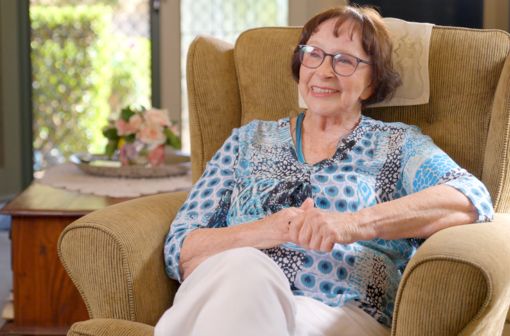“A little bit of tension or conflict is not necessarily going to hurt you long term. It’s part of being in relationships.”—Nick Tebbey, National Executive Officer, Relationships Australia
Key points
- Setting boundaries and saying “no” to social commitments can be essential to protect our wellbeing, especially during busy periods.
- Practical tips include: pausing before committing, talking to yourself like a friend and blocking out downtime in your calendar.
- Saying “no” isn’t selfish—it allows you to focus on your own priorities, which ensures you can show up as your best self when you do say “yes”.
Do you ever feel overwhelmed by social commitments? Think of the Christmas and New Year’s period, for example. Do the gatherings, catch-ups and end-of-year events you attended truly serve you—or could you easily skip a few? (And feel happier for it.)
There’s no question that social connection is important for our wellbeing. In fact, research from the Australian Unity Wellbeing Index—a long-term study into the wellbeing of Australians, conducted in partnership with Deakin University—tells us that strong personal relationships form part of the “golden triangle of happiness”. (The other two are financial control and having a sense of purpose.)
But when life becomes a relentless blur of demands and expectations, the constant busyness can erode the benefits, leaving us feeling stressed and burnt out, with little time for things that support and nourish us. That could include preparing healthy meals, working out, ticking off a few household chores from our to-do list, or simply resting.
For the sake of our Real Wellbeing, then, learning to set boundaries and say “no” is essential. Not only can it protect our overall health, but it also allows us to show up fully to the commitments that matter most.
.jpeg)
Why boundaries matter
It’s pretty simple, really: when we take on too much, our wellbeing suffers. Physically, stress can lead to exhaustion and illness, while emotionally, we may feel overwhelmed or resentful.
As Ruby Wolinska, a Counselling Team Leader at Australian Unity, explains, “Overextending ourselves can be okay in the short term, but in the long term it can result in problems like illness, fatigue and burnout, which all leave us far less effective in both our work and personal lives.”
Learning to set boundaries helps keep us in balance, protecting our energy and allowing us to contribute meaningfully when we do say “yes”.
Why is it so hard to say “no”?
Often, stretching ourselves socially comes down to people-pleasing. After all, humans are naturally wired to seek harmony within their social groups, Ruby explains.
“Historically, our survival depended on cooperation, which makes saying ‘no’ feel risky or unnatural,” she says.
Many of us are also conditioned by our upbringing to put others first, adds Nick Tebbey, National Executive Officer of Relationships Australia. He points out that “people often feel like they have to meet certain expectations or risk letting others down.”
Women and people who are highly empathetic may feel this pressure intensely, and may go along with something simply to keep the peace—often at their own expense.
“Culturally, the pressure to ensure everyone is happy and looked after tends to be placed on women,” says Ruby. “Empathetic people, too, may feel driven to take on more because they don’t want to let others down.”
But Nick stresses that self-care is not selfish—it’s necessary for maintaining healthy relationships.

Practical strategies for setting boundaries
Boundary-setting is a skill, and like any skill, it takes practice. To help you start flexing this muscle, Ruby suggests trying the following tips:
- Take a beat before committing: When asked to take on something new, give yourself time to think. A simple “let me get back to you” buys space to consider whether you can realistically take on a new commitment without compromising your wellbeing.
- Set practical rules for yourself: Set clear limits that work for your lifestyle. For example, you might decide to attend no more than one social event per week, or you could block out downtime in your calendar. Having a visual plan helps you prioritise and avoid overloading your schedule.
- Reframe how you see “no”: Many of us associate the word no with letting others down, but Ruby suggests reframing it this way: “It’s my responsibility to say no when it’s healthier than saying yes, and I trust others will do the same for me.” Saying no is an act of honesty and respect that can help you develop better relationships.
- Talk to yourself like a friend: If you’re unsure whether to say “yes” or “no” to an invitation, imagine advising a friend in the same situation. “Often, we’re kinder and more supportive towards others than we are to ourselves,” says Ruby.
- Create a boundary-positive culture: Changing how we view boundaries can make them easier to uphold. Ruby suggests acknowledging others when they set healthy limits. “If someone says no to you, thank them for their honesty,” she says. “This creates a positive cycle and normalises boundary-setting for everyone.”
Facing the discomfort of other people’s disappointment
It’s natural to feel uneasy about setting boundaries at first, but Ruby reminds us that it’s okay for others to feel disappointed when we say “no”.
“You’re not responsible for how other people feel—you’re only responsible for how you deliver your message,” she says. “It’s their job to manage their emotions, not yours.”
In fact, this is another example of boundary-setting. If you imagine yourself in a house with a fence around it, other people’s feelings are very much “in their yard”. You can be sensitive and sympathetic to those feelings, but ultimately, it’s up to the other person to deal with them.
Maybe they don’t handle disappointment very well, and that can be uncomfortable. But sitting with this discomfort gets easier over time.
“The balancing act is to know that a little bit of tension or conflict is not necessarily going to hurt you long term,” says Nick. “It’s part of being in relationships. But you need to know your limits—where it moves from being uncomfortable to unsafe, unhealthy or unacceptable.”
.jpeg)
Finding balance in busy times
During high-pressure periods, boundaries are particularly vital. By saying “no” to what doesn’t serve you, you can say “yes” to the commitments that matter most, ensuring you show up as your best self.
“Boundaries aren’t about limiting relationships,” emphasises Ruby. “They’re about fostering healthier ones.”
Recognising the signs of overcommitment
If you’re someone who tends to automatically say “yes” to every request, these are some signs that you might need to reassess your approach:
- A constant sense of overwhelm, or dread.
- Feeling physically unwell or frequently getting sick.
- Friends or loved ones expressing concern about how much you’re taking on.
If any of these resonate, says Ruby, it’s time to reflect on where your limits lie—and to start protecting them.


